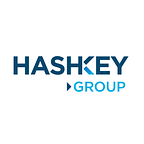HashKey Digest Vol. 22 Part IV: Keep3r-DevOps
August 13 2021 — One of the hottest branches of modern software engineering is DevOps, which is defined as the practice followed to optimize the functionality of the software development lifecycle.
DevOps is an essential part of the modern software lifecycle. For example, deploying cloud infrastructure to enable others to build applications is a typical case where DevOps engineers are needed. In essence, software engineers working in DevOps may create products that are used by other software engineers.
Keep3r Network is designed to serve this growing niche market. Keep3r is created by Andre Cronje to connect decentralized applications with people who can perform the day-to-day tasks required for functions of everyday protocols. Before the advent of Keep3r, developers like Cronje had to manually perform tedious tasks like performing clearances. Outsourcing these tasks to external parties allows DeFi engineers to focus on other responsibilities such as protocol development, integration or new functionalities. Perhaps a useful analogy is to imagine Keep3r as an online job board or a TaskRabbit for smart contracts.
Jobs and Keeps
Jobs is any smart contract that requires a third party (i.e. administrator) to perform the operation. Today, a smart contract is a deterministic program built on the blockchain. Smart contracts have a particular drawback: they are dormant by default and require a trigger to wake them up when there is a need to perform on-chain functions. The trigger can be set based on time, an event, some calculations, or any combination of the three. Jobs is the trigger that Keepers need to start.
In Keep3r V1, the reward for performing a job is paid in $ETH or a network-native $KP3R token. While the latter can be traded on a decentralized exchange at market price, keepers are incentivized to “stake” them on the Keep3r network in a process called “binding”. Bonded tokens cannot be traded on the market, but can qualify the holder for higher-level jobs (example). In this way, the $KP3R token serves as the primary “reputation” signal for the protocols that post jobs on the network. Another way to quantify the “reputation” within the system includes the total fee charged for past services or tenure as a network administrator.
In December 2020, Andre Cronje announced a new generation of Keep3r network led by Chainlink. Arguably, Chainlink is the most commonly used oracle of DeFi, and is a trusted resource for crypto developers worldwide. The partnership between Keep3r and Chainlink allows Chainlink node operators to complete the jobs of keepers, and the join-in of Chainlink node operators provides Keep3r with the same level of security and same talent as Chainlink’s other services. In addition, existing administrators who have earned high reputation scores on the Keep3r network are eligible to become Chainlink node operators.
As expected, Chainlink Keepers maintain a similar workflow to that of Keep3r Network. Notably, the Registry Owner is added, which manages the list of jobs posted by clients. Chain node operators access the registry to view and perform the maintenance tasks requested by the protocol. The following chart illustrates the process of Chainlink Keepers.
However, Chainlink Keepers replace $KP3R with $LINK, aiming to eventually phase out $KP3R in the ecosystem.
Though Keep3r started as an encrypted DevOps platform, it may not end up this way. Looking at the bigger picture, Keep3r Network is the first iteration of gig economy built on top of Ethereum. With the ability to streamline the operations of developers, developers may be able to establish more promising protocols and leverage a decentralized network of freelancers. We now know that freelancing in a decentralized way is possible. Outside the engineering field, who knows if future developers will create the next Uber or DoorDash in the same way. All these suggest that the ecosystem built in DeFi can revolutionize the way we live.
Link to original article: https://messari.io/article/keep3r-network-devops-for-crypto-protocols
